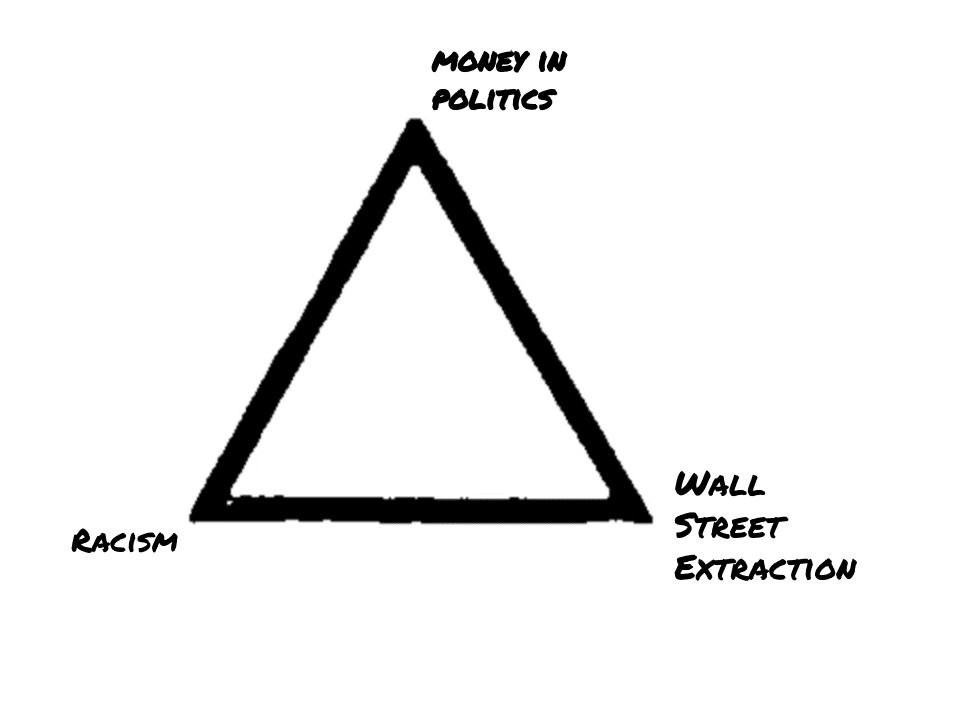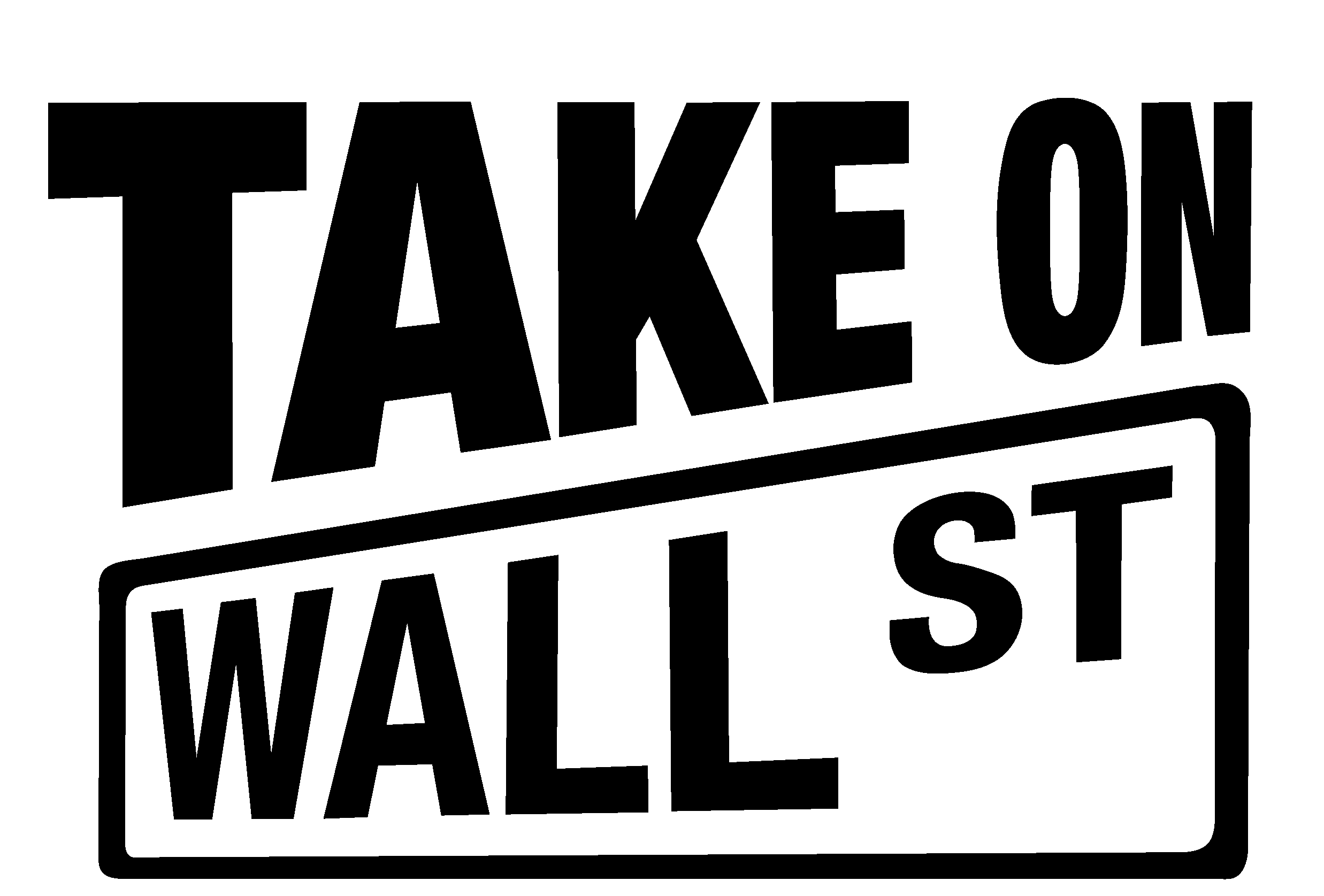Wall Street, Race & Gender

Racism, sexism, financial extraction, and the buying of democracy have always been a suite of tools used by the American elite in concert with each other to preserve their power. Wall Street’s origin as a financial center was as a slave trading post, “collateralizing” loans to slave-owners with enslaved Africans as the “bonds.” Women — especially women of color — did not have basic economic rights until relatively recently in American history.
There’s a long history of these injustices interacting with each other to rig the system for white male elites: the big Wall Street banks target communities of color and women for wealth extraction, and then it uses that ill-gotten wealth to buy silence and even assistance from (often though not always white male) elected officials. We call this the “toxic triangle.”

Our democracy depends on breaking apart this triangle. If we want to build a democracy for white, black, and brown working families, not big Wall Street banks and the donor class, our elected officials can no longer get a pass on the issues financial watchdog groups “don’t work on.” Financial reform requires activism on racial justice, gender justice, and democracy reform.
Here’s how structural racism and Wall Street intersect.
- Wall Street and the 1% spend billions in lobbying and campaign contributions in an attempt to get policies that rig the rules in their favor and allow them to extract more and more wealth from the rest of us.
- Wall Street and its allies often rely on racist and sexist appeals, or dog-whistle politics, to push policies that are good for them and bad for working people. Coded language — like the “Welfare Queen” stereotype — is used to blame immigrants, Black and Brown working people, and women for economic hardship and to make everyone dislike government so that Wall Street and its allies can continue to write the rules in its own interests.
- The groups that are blamed for economic hardship are precisely the groups that are targeted for wealth extraction by Wall Street and its allies in government. Our movements must look to expose the ways in which the financial elite take hold of the political process to design policies that extract wealth from poor and working people, especially from communities of color, and women, and that create barriers to prosperity for all working people, and to take them on.
While Wall Street’s actions harm all of us, it particularly targets certain groups for wealth extraction. We must center race and gender in our campaigns and movements to support those who are most affected, and to strike at the core of Wall Street’s predatory operations. Read on to find out how Wall Street intersects with structural discrimination to extract profit from every facet of our lives, our housing, health, education, and even our water. (And check out this paper on bridging the racial wealth divide for potential solutions.)
Buying a Home
- For people of color, banks are shutting the door to homeownership
- “Pinklining”: How women of color are disproportionately hurt by Wall Street’s predatory practices
- Same-sex couples face higher rejection and worse mortgage rates
- Office of the Comptroller of the Currency Fines Citibank, N.A. $25 Million for Violating the Fair Housing Act
- JPMorgan Chase officially reaches $53 million settlement for lending discrimination: Wholesale lending brokers accused of charging higher rates to minorities
Buying a Car
Getting an Education
Banking
On the Job
- Employment Discrimination and Sexual Harassment on Wall Street
- JPMorgan Will Pay $24 Million to End Lawsuit From Black Advisers
Laws
- Wall Street Money in Washington
- In 2018, Congress rolled back 2 regulations that hold Wall Street accountable for discrimination
Justice
- Wall Street Investment in the prison-industrial complex
- How mass incarceration disproportionately impacts people of color and the poor
Debt
- Geographic variations in share of population with debt in collections
- The criminalization of private debt
